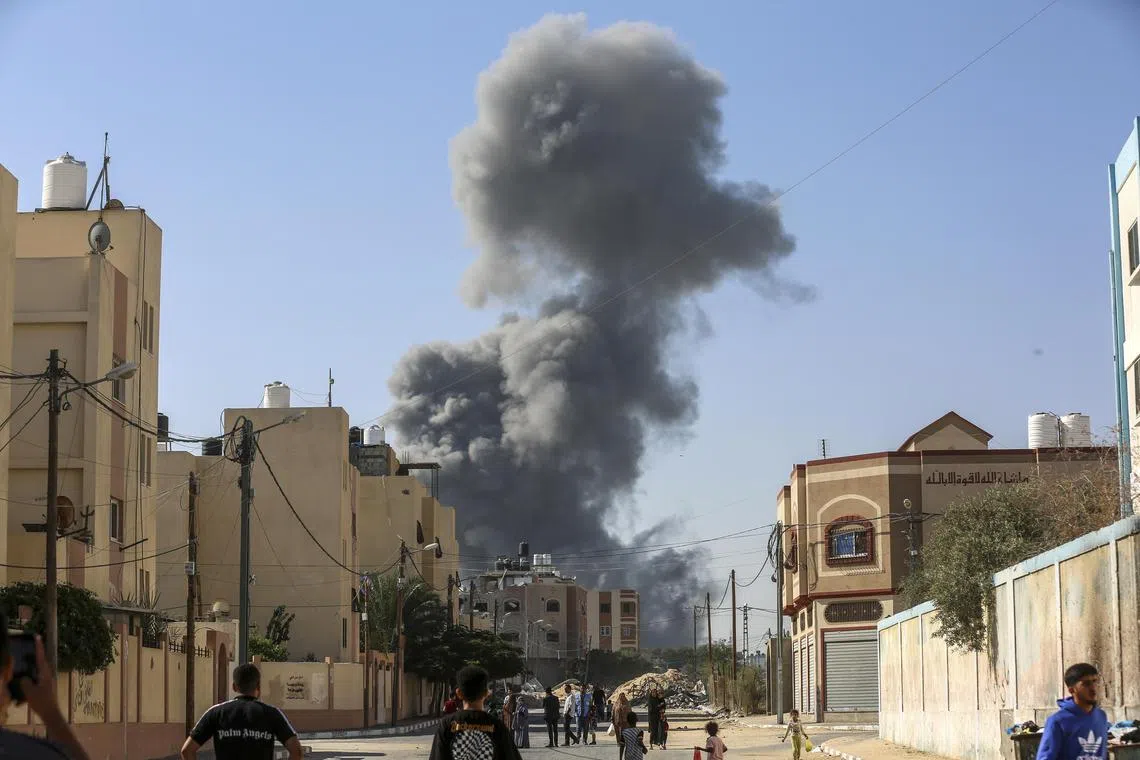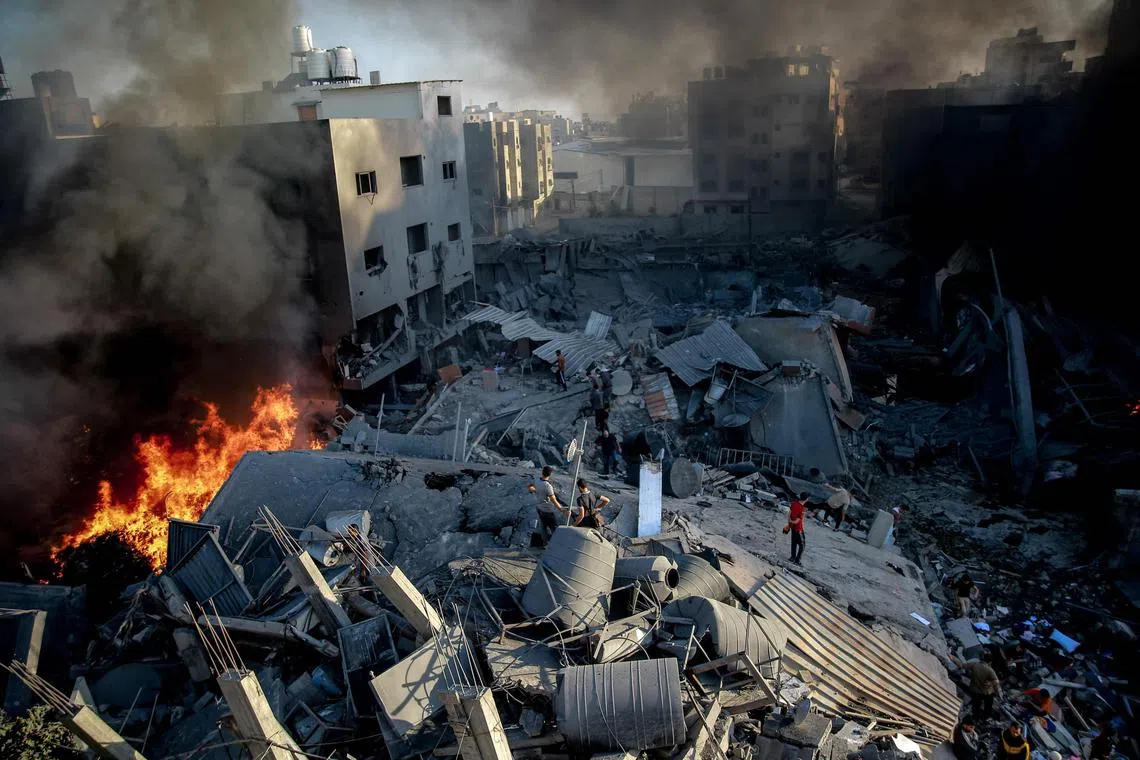‘There is no safe place’: Some Palestinians have been forced to flee again and again
Sign up now: Get ST's newsletters delivered to your inbox

Israel says it is targeting Hamas infrastructure, but its air strikes have also hit civilian infrastructure across Gaza.
PHOTO: NYTIMES
Follow topic:
GAZA – By Wednesday, Ms Sondos Badawi’s family members had fled for their lives four times in eight days.
They left their home in Gaza City after Israel told civilians to evacuate south
Then they returned north when Israeli air strikes pounded the neighbourhood where they were staying with friends.
The third time, they ran, barefoot and bloodied, to find shelter at a hospital after a missile crashed into their home. The fourth time, they decided, once more, to head south.
“There is no safe place,” she said.
Across the Gaza Strip, people are being forced into a situation in which every choice feels like the wrong one – the bombardments are happening everywhere.
Israel says it is targeting Hamas infrastructure, but its air strikes have also destroyed or damaged civilian infrastructure across Gaza, including homes, bakeries, malls and mosques.
Hundreds of thousands of people have left northern Gaza after Israel said they should evacuate to the south nearly two weeks ago.
But the harsh conditions there – relentless air strikes, overcrowded shelters and spreading illness
Mr Ahmed Alghazaly, 26, and his family packed up and left home in Gaza City earlier in October for Deir al-Balah, in southern Gaza.
They crowded into a relative’s home, but it was soon damaged in an air strike. They made their way back to Gaza City, only for a strike to hit their own home.
Now Mr Alghazaly’s extended family is scattered across Gaza, he said, seeking shelter, food and water wherever they can find it.
“Everything’s gone, everything we had,” he said. “The sights I’m seeing make me want to die.”
Travelling across Gaza has deteriorated from routine to torturous.
When Ms Badawi, 24, and her family of 13 – her father, sisters and a brother, as well as spouses and children – decided to leave the south after two days of air strikes, it took so long to track down transportation that they could afford, she said, that “when you find a driver, it’s like finding a jewel”.
Their relief at being home again did not last.
Two days after they returned to Gaza City, on Sunday night, bombs began crashing down on the neighbourhood. They managed to run out into their garden before their own home collapsed in an air strike, Ms Badawi said.
More bombs fell. She thought she was going to die.
They ran for a neighbour’s house, but before they could get there, a missile exploded nearby, injuring one of her sisters in the leg.
They made it inside, but a blast shook the house, and part of the ceiling collapsed.

Smoke and fire rising from a levelled building in the aftermath of an Israeli strike on Gaza City, on Oct 26, 2023.
PHOTO: AFP
They scrambled outside again, and her brother Khaled sprinted towards Al Quds Hospital. The last she saw of him, there were explosions everywhere. She thought he was dead.
The bombing lasted for more than an hour, she said – an hour of praying, an hour of cowering.
As soon as they thought the air strikes had let up, the family, minus Mr Khaled, went to the same hospital. Without veils, without shoes, without any money or possessions, they picked their way through craters and roads filled with debris and broken glass, carrying the babies.
They stayed for two days at the hospital, where they were reunited with Mr Khaled, who had survived, while Ms Badawi’s sister’s leg was treated.
But Al Quds, too, had been ordered to evacuate, they said.
Again they searched for a driver to take them south. A neighbour paid the roughly US$73 (S$100) fare. By Wednesday night, they were crammed into the home of a friend of another brother.
They did not know how long they would stay. NYTIMES

